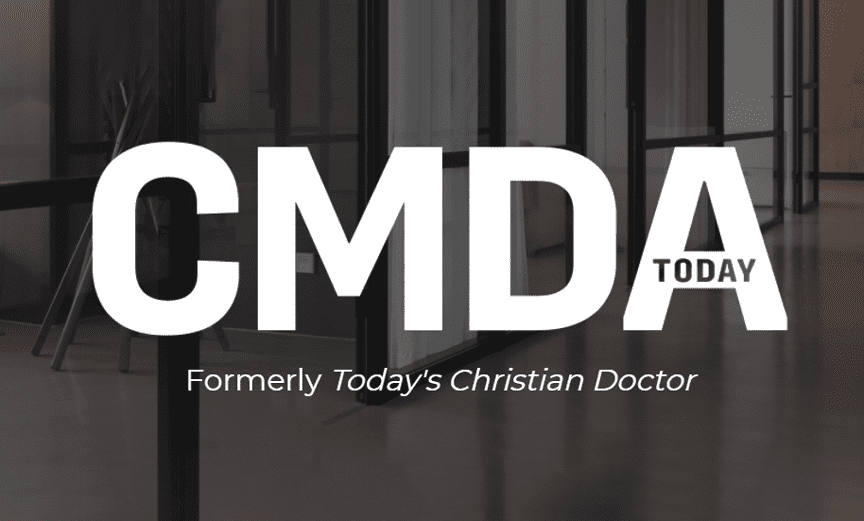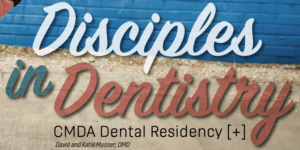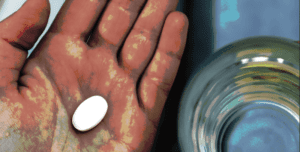
Gifts and Miracles: My Unexpected Journey into Addiction Medicine
When I entered my family medicine residency, I had a cohort of marijuana-smoking pregnant women to care for. They drove me crazy. Many nights I would come home to my wife and tell her, “If I ever really hate myself, I will figure out a way to treat adolescent, obstetric addiction.”
by Timothy Allen, MD
When I entered my family medicine residency, I had a cohort of marijuana-smoking pregnant women to care for. They drove me crazy. Many nights I would come home to my wife and tell her, “If I ever really hate myself, I will figure out a way to treat adolescent, obstetric addiction.” I would ask my professors for help and direction in caring for these women, and generally I only received shrugs and funny looks in return. Despite my failures in residency, 10 years later I embarked on a path of treating pregnant women who struggle with addiction, and I have found it to be an amazing opportunity to see God change the lives of people who struggle with addiction, to show the love of Jesus and to see Him provide in miraculous ways.
Opiate abuse is currently the number one cause of death for adults 18 to 60 years of age in the United States. During the worst years of the HIV epidemic, 45,000 people per year died in the U.S. In 2016, 62,000 people died from opiates. If someone injects heroin once, there is a 56 percent chance they will ultimately die of complications of heroin abuse, with a 2.5 percent to 5 percent per-year mortality depending on the study.[1],[2]
My opiate treatment career started in 2014 when a I saw a young woman in my office who had been my patient since she was in second grade. She was now in high school, had gotten into trouble, started using drugs, and was now pregnant and on heroin. A quick search on UptoDate said that you could not stop or wean opiates in pregnancy, since doing so would quadruple fetal mortality (current recommendations say you can safely wean slowly, but not stop suddenly.) So, I started calling around to try to find a methadone clinic or suboxone provider for her, but I had a hard time finding one. It seemed that most providers did not want to work with pregnant women, and there was a huge shortage of providers overall. I have learned that, as of now, 60 percent of U.S. counties have no suboxone or methadone providers. Frustrated that I could not find help for this girl, I did further searching and found that if I took an eight-hour online course, I could start prescribing suboxone for one patient emergently, then 30 patients at a time for the first year, followed by 100 patients at a time thereafter. I went home, logged onto the internet, spent eight hours learning the basics and then started her on suboxone the next day.
As I read more about caring for pregnant women who struggle with addiction, I was convicted by this: if you ever really want to be treated badly in a healthcare setting, be a pregnant woman who struggles with addiction. There is a special sort of condemnation for women who “don’t care enough about their babies to stop using drugs.” I wondered how Jesus would care for these women, and I thought of Matthew 25:40. I realized that pregnant, addicted women definitely qualify as “the least of these.”
“And the King will answer them, ‘Truly, I say to you, as you did it to one of the least of these my brothers, you did it to me.’” —Matthew 25:40, ESV
I continued studying, and once I got my feet under me and felt I had learned enough, I contacted some of the local obstetric healthcare professionals and told them I would be happy to see any women they had who struggled with opiate problems. I received enthusiastic responses and heard over and over that it was nice to have someone who actually wanted to see their patients. The pregnant women were usually less than enthusiastic to meet me—terrified would be a better description. The fear usually dissolved quickly, though, as I was able to show them the love of Jesus and tell them that I only treat addiction because I care about them, I want them to have a healthy pregnancy and a healthy baby, and I want to help them keep their baby. This is where the miracles start to come in. In the four years I have been caring for pregnant women with addiction, only one of my 30+ patients does not have custody of her child.
I saw I had a tremendous opportunity to speak into these vulnerable young women’s lives. Countless times I have had patients miss appointments, and when I ask them why they didn’t come, they tell me they were called into work. Out of fear of losing their jobs, they never want to tell their employer that they have a doctor’s appointment. This gives me the opportunity to tell them that they won’t be fired (that would be against the law with pregnancy being a protected health class), but, even more importantly, it gives me the opportunity to tell them they have value and it is ok for them to stand up for themselves. Many young women have welled up with tears at this point, telling me that I was the first person in their lives to tell them they have value.
Addiction treatment gives me numerous opportunities to share my faith, as addiction treatment relies heavily on 12-step programs and other forms of spiritual support. As an addiction doctor, I am required to talk to my patients about their spiritual lives. God had already provided for that need, as my church has an active Beyond Addictions program to which I can refer my patients. “You go to a church that likes addicts?” I am often asked. Yes, I do. Moreover, spiritual treatment has been shown to be an incredibly effective treatment for addiction.
As part of my training in becoming a board certified addictionologist, I watched a recorded breakout session about 12-step programs like Alcoholics Anonymous (AA). During the session, there were multiple paper presentations on why 12-step programs work, followed by a roundtable discussion. The papers went over many possible ways that 12-step programs could be effective. Perhaps it was the peer support, perhaps the groups attract the more motivated people or perhaps the 12-step participants might have less severe addictions to begin with, have less severe psychiatric comorbidities, are more motivated or have better social support. One by one, the studies showed that each of these possibilities was not the cause for the success of AA. Overall, 30 percent of people who show up to AA or other 12-step programs find long-term sobriety, but one subgroup brings almost all the success: those who have a “spiritual transformation” have a 92 percent long-term success rate. After much discussion on this point and the panel lamenting over their inability to find any other reason for the success of AA, the moderator closed the session by stating, “It is obvious that we will need to continue to work on researching this subject or else we will be at risk of endorsing religion.” I, for one, have no problem endorsing religion or, more specifically, Jesus as the ultimate treatment for addiction.
Simply endorsing Jesus to my patients is not enough, though. I learned long ago the benefit of intentional prayer, so starting with my first addiction patient, I kept a list of the first names of every addiction patient I have treated, and I pray over that list every day. God has been faithful. In the five years I have been practicing addiction, not one of the 500+ patients I have treated for addiction has died. According to the national mortality statistics, somewhere between 35 and 75 of those patients “should” have died. Just before writing this article I double-checked, and all my patients are still alive. Only God can bring such success.
After building on a foundation of Jesus’s ability to change lives and covering my addiction ministry with prayer, I must earn the right to speak into my patient’s lives. I have found that the love of Jesus expressed in genuine concern for my patient’s well-being earns me the right to tell them abut my relationship with Christ. I begin by telling my patients that my first priority is keeping them alive, since live patients are the best type. Suboxone reduces the risk of death from opiate overdose by 70 percent. I also explain that it evens out their brain chemistry so they can start thinking normally again. Next, I tell them that I am going to help them with their anxiety and depression (1 percent of the general population has bipolar disorder, but 70 percent of addiction patients have bipolar.) By treating their psychiatric needs, I show my concern for them as people. I then explain how, once I have met their physical, emotional and psychiatric needs, I will begin to help them build a new and better life. I tell them that I do not treat addiction because I take any joy in taking away anyone’s joint or beer—I treat addiction to give people better lives. As I cast a vision of a better life, I can introduce them to true life in Jesus.
As I seek to introduce my patients to Jesus, I have had the opportunity to build relationships with other local churches and refer people who struggle with addiction to their Celebrate Recovery and God-based 12-step programs. In return, they end up sending new patients back to me. Further, I have been given the opportunity to support the local crisis pregnancy center, CareNet, by fielding calls to talk to addicted moms. No matter how busy my schedule looks, I am amazed how God always clears that schedule to take a call when CareNet needs me.
If I had been told in residency that God would have called me to the very thing I hated—adolescent obstetric addiction medicine—I would have taken that as a curse or cruel joke. However, now I see it as a great gift from God, a gift that has come with countless blessings and miracles.
I hope this article has shown how exciting and fulfilling addiction treatment can be. If you are interested in treating people who struggle with addiction and opening amazing doors to ministry. You can visit the American Society of Addiction Medicine (ASAM) website at www.asam.org and look at the buprenorphine waver course. Many local ASAM chapters also offer free buprenorphine waver courses for interested physicians.
About the Author
Timothy Allen, MD, practices family medicine and addiction medicine with his wife Nikki Allen, MD, at their clinic, Allen Family Medicine, in Cudahy, Wisconsin. They have been members of CMDA since starting medical school. He attended California State University Sacramento prior to graduating from the Medical College of Wisconsin in 2001, completed St. Luke’s Family Practice Residency in Milwaukee, Wisconsin in 2004 and was board certified in addiction medicine in 2015. He and Nikki have been married for 20 years, and they have four children and one grandchild.
[1] https://www.cdc.gov/mmwr/volumes/67/wr/mm675152e1.htm?s_cid=mm675152e1_w
[2] https://www.who.int/bulletin/volumes/91/2/12-108282/en/









